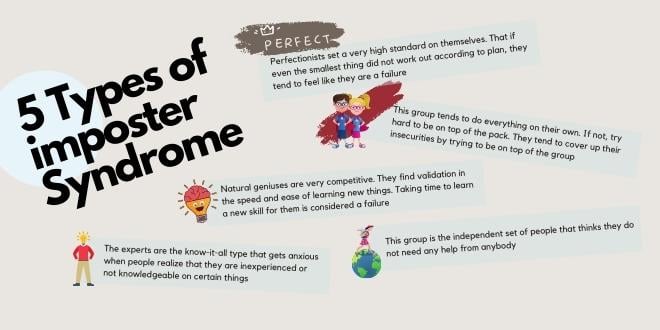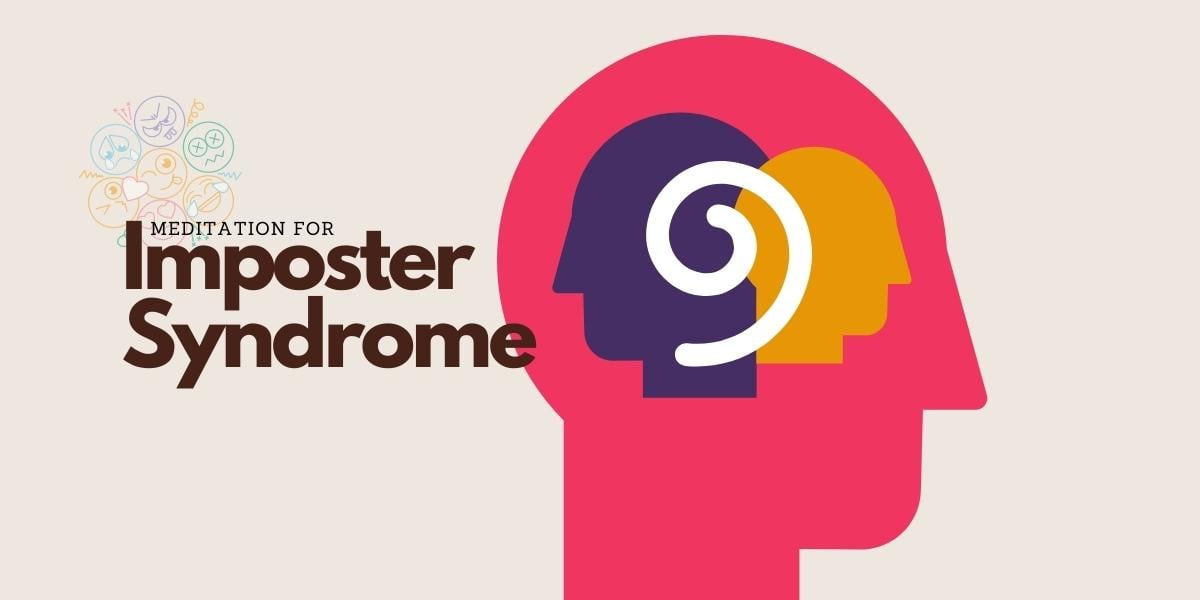Meditation
Meditation For Imposter Syndrome
There will always be an episode in our lives when we will experience self-doubt. There seems to be a voice at the back of our heads saying we are never enough no matter how successful our careers are. Don’t worry. It is perfectly normal. But what is not normal is when that voice at the back of your mind seems to contradict everything that you are doing. From the smallest success to your biggest achievement, you don’t feel adequate. You might be experiencing imposter syndrome.
Meditation is one way to block out the negative thoughts in your mind. Meditation for imposter syndrome is a simple yet effective way to shut down your negative thought patterns.
What is imposter syndrome?
Imposter syndrome is a term for personal feelings or beliefs that you are not good enough no matter how high your achievements are. It was first studied in 1978 by Pauline Rose Clance. Although this is not classified as a disease or a mental illness like ADHD, anxiety and depression, this is a very common experience for many people. Impostor syndrome is also associated with “pluralistic ignorance”, where a person believes that his attitude is different from the majority. And because this is not considered an illness, there is no cure for it. But you can overcome imposter syndrome by doing meditations.
How to use meditation to overcome imposter syndrome effectively?
It is already proven that meditation can clear the mind from negative thoughts. Overcoming imposter syndrome through meditation can change your way of thinking. It can help you focus and be more positive. When we meditate, we release negative thoughts and emotions that can trigger imposter syndrome. It also gives us awareness of ourselves and trains our minds to focus on the better version of ourselves.
If you do not know where to start your imposter syndrome meditation, you can also do a guided meditation. Guided meditation can be done with a meditation teacher or you can go online and listen to guided meditations to overcome imposter syndrome. Virtual meditation is a good awakening meditation for introverts. Since introverts do not feel comfortable with the presence of big crowds, doing virtual meditation on their own can help them deal with imposter syndrome.
Mindfulness meditation for imposter syndrome
When you do mindfulness meditation, you practice being present in the moment. You learn to acknowledge what is going on around you so you can react well to different situations. Mindfulness meditation is helpful for those suffering from imposter syndrome. When you do mindful meditations, you become more aware of your thoughts. This gives you the awareness of your negative thoughts and dispels them. This practice will also give you awareness of your achievements and failures and balance them for a more positive attitude.
Types of imposter syndrome

- The Perfectionist
Perfectionists set a very high standard on themselves. That if even the smallest thing did not work out according to plan, they tend to feel like they are a failure. This kind of imposter syndrome rarely feels satisfied. As we all know, hardly anything in this world is perfect. No matter how much we try to plan things, there will always be a hiccup and all we need is to work around it and get back on track.
- The Superman and Superwoman
This group tends to do everything on their own. If not, try hard to be on top of the pack. They tend to cover up their insecurities by trying to be on top of the group. They tend to exert more effort and feel that they are superior. Superman and superwoman get validation from their work and from the approval of others. Failure to make their superior happy is a downfall for them.
- The Natural Genius
Natural geniuses are very competitive. They find validation in the speed and ease of learning new things. Taking time to learn a new skill for them is considered a failure. Just because they are geniuses, they feel that they need to learn something on the first try. Hence, the frustration arises, making them feel that they are not good enough.
- The Soloist
This group is the independent set of people that thinks they do not need any help from anybody. Yes, it is good to be independent and to solve things on your own. But some things need effort from multiple people. Nobody is an expert on everything, we all need the help of other experts.
- The Expert
The experts are the know-it-all type that gets anxious when people realize that they are inexperienced or not knowledgeable on certain things. This group of people has a tendency to try and take in as much information as possible to show that they are experts in different fields.
Why do people struggle with imposter syndrome?
Nowadays, with the golden age of the internet, people are putting too much pressure and expectations on themselves. Social media has set up a standard that if you do not fit into that standard, then you are a failure. Even in the workplace, with the growing number of young professionals, people seem to set themselves up for the bigger challenge. Even if they are not necessary just to be on top of the pack.
How do you calm down imposter syndrome?
Apart from meditation, there are a few other ways to avoid or lessen imposter syndrome. These are some mindful and mental activities that you need to practice to lessen the feeling of anxiety.
- Be aware of your imposter syndrome and acknowledge that you have a tendency to be negative and be critical of yourself.
- Do not be afraid to share your thoughts and feelings. Letting your negative emotions out can help you lessen the burden of imposter syndrome. Talking to someone about how you feel is not a sign of weakness or failure.
- Know that you are not the only one experiencing this syndrome. Even the highest position in your company might be struggling with imposter syndrome.
- Recognize your imposter syndrome tendencies. Accepting your tendencies can help you lower your expectations of yourself. If you recognize that you are a perfectionist, you have to slowly understand that not everything will go your way. This will help you be more calm and collected when taking the next step to solving things.
- Give yourself a reality check and acknowledge that the world is too big to focus on you. Get out of your bubble and realize that the world does not revolve around you. Just because you think this way does not mean that the world is on the same page. In reality, people have their own business to mind that a small failure from you will not stop the world from moving.
- Acknowledge that you are good enough dn your contribution to the community, not matter how big or small is important.
Frequently Asked Question
Who is most likely to get imposter syndrome?
People that set a very high standard on themselves are most likely to get affected by imposter syndrome. They often have a hard time accepting that things won’t always go their way and failure is always possible, hence the feeling of not being good enough.
Can imposter syndrome cause depression?
Imposter syndrome is not considered a mental health illness, although it is always linked to depression and anxiety.
How do I know if I have imposter syndrome?
When you feel like no matter what you do, or how great your achievements are and you still feel inadequate, check yourself if you have imposter syndrome.
How do you help people with imposter syndrome?
People with imposter syndrome tend to hide their feelings and fail to acknowledge that they have this. But once a person opens up to you, the best thing you can do is to listen and give words of encouragement. You can also introduce them to imposter syndrome meditation which can help them battle their negative thoughts.
How do you escape imposter syndrome?
Imposter syndrome will not go away overnight. It takes time and discipline, especially mentally to overcome this. Do your regular meditation, be mindful of your condition and have a more positive outlook on life.

